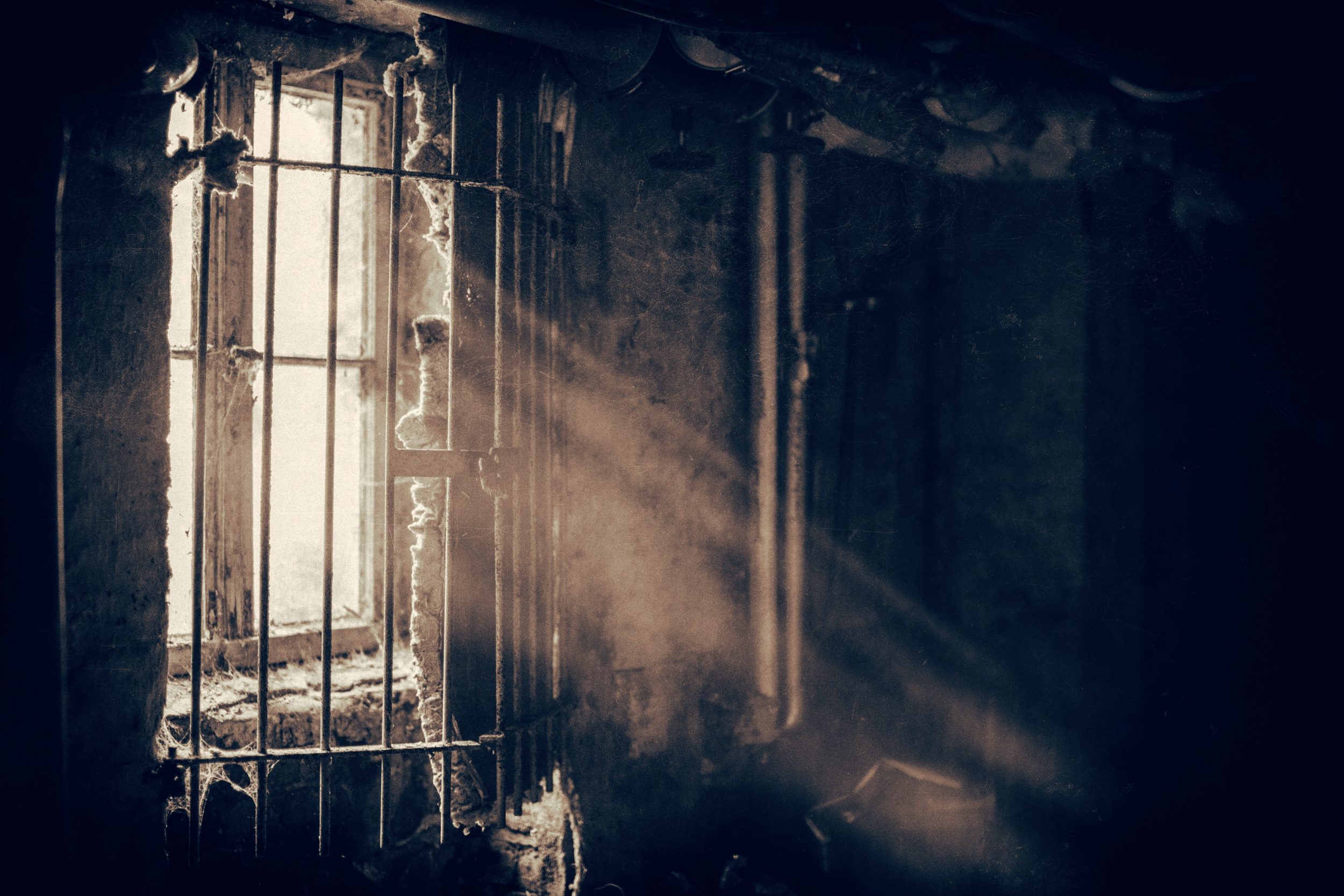Abolitionists have been fighting for generations to shut down oppressive facilities and institutions across the nation that look, smell, and feel just like the Washington State Reformatory Unit in Monroe, Washington, where I’m currently serving 65 years for murder, attempted murder, and assault. The infrastructure here, if one can call it that, is crumbling. In some spaces, we’re living in raw sewage and mold, the smell of feces permeating our units on any given day. Not only is WSRU, built in 1910, the state’s second oldest prison and its most outdated facility, but the racist staff and their unchecked union continue to foster a culture of fear, white supremacy, and negative phobias against those they’re paid to guard.
Closing down a place this harmful and toxic to so many people should be a no-brainer for abolitionists like me. The state has never seen things our way. So imagine my surprise when, back in May, the Washington State Department of Corrections posted a memo stating that they are working on a plan to close up to 18 living units at 12 correctional facilities across the state due to various circumstances that have left approximately 3,600 prison beds vacant. To no one’s surprise, WSRU was at the top of that list.
Read the closure plan
Facility Closure Plan, Washington State Department of Corrections
This decision, which the state made without our input, has elicited a range of emotions from the people who live here, and sparked conversations that grapple with the growing calls across the country for prison abolition — or at least something close to it. When confronted with the reality of prison closures, abolitionists recognize that what we preach is much more difficult to practice, requiring unexpected growing pains to reimagine something new. The state’s plan has thus tested our commitment to abolition: Is abolition something people are willing to sacrifice for, or is it something that just exists in theory and easy to romanticize?
When confronted with the reality of prison closures, abolitionists recognize that what we preach is much more difficult to practice, requiring unexpected growing pains to reimagine something new.
As the announcement continues to divide us within the prison, I think of adrienne maree brown’s words: “I want us to acknowledge that the state is watching, listening, and making use of our limitations. I want us to abolish the state, including the ways we support them to dominate us.” I fear the state is listening to those inside WSRU who argue that closing WSRU would be a mistake. And I fear their arguments might prevail.
Some of the people arguing against the closure are self-proclaimed abolitionists who fear that closing WSRU will prompt the loss of positive programs, educational opportunities, and program sponsors that made available here due to our proximity to major Washington cities like Seattle. These cities are also home to many people’s support networks, and closing WSRU would further separate prisoners from their families. Visitations are probably the single, most important component to keeping families together while dealing with incarceration, and closing WSRU would be a devastating blow, creating a major hardship for families whose incarcerated loved ones may be transferred to a facility farther away.
These are all valid concerns that highlight the complexities of abolition. But they also highlight the tragedy of a criminal legal system that thrives off the maldistribution of resources to keep people dependent and handcuffed to the very institutions that are holding them captive.
Why is it that only WSRU has all these programs while other prisons don’t? Shouldn’t positive programming and educational opportunities be accessible at all prisons statewide? The fact that the “best” educational opportunities are tied to the facility with the most inhumane living conditions in the state, the one that costs Washington taxpayers the most to operate, should be reason for pause. If those programs truly belonged to the people, they can never be tied to the existence, or non-existence, of an oppressive institution, but rather to the love of our community that is in us wherever we go. If the state moves us, that love should follow us.
Dean Spade eloquently describes this predicament in their 2020 book, Mutual Aid, where they write, “Because of how capitalism controls the means for getting by — food, health, housing, communications, transportation — and how dependent we are on systems we do not control, it can be hard to imagine that we could survive another way.” By keeping positive programming and education chained to the worst of living conditions at WSRU, the state coerces people into believing they need their captors to achieve some sort of success and the promise of a reclaimed humanity that could potentially come with that success. But prisons can bestow neither success nor humanity; the programming either goes where we go, no matter where we go, or it should cease to exist.
And are the advocates and volunteers who run these programs willing to lend support only when it is easy — or will they continue to stand by us no matter what the state does? Perhaps some of these supporters are merely cogs in the so-called non-profit industrial complex, lending credence to the state’s exploitation of prisoners while providing collaborative community building — until such building is no longer in their best interests. How this industry operates has been thoughtfully explored and written about. Since their livelihood and success are dependent on supporting prisoners, what would happen to their funding if there were no longer prisoners to profit from? Will they join our struggle?
With respect to the possible distance and hardship added to visitations and the further separation of families, that is a matter of sacrifice that I do not take lightly. I personally have been incarcerated at various facilities throughout the state and have been no closer than three to five hours from my family over the past decade. WSRU is only 30 minutes away from my family, and I value the time I am able to spend with them as much as anybody. The closure will be a burden to them, but they understand that sacrificing for the things I believe in is worth it. For the first time in my life, I’m fighting for something that’s right and for a purpose that’s contributing to the community, not tearing it down — although, ironically, that contribution means tearing down prisons.
So yes, I understand what closing this facility could possibly mean for the lives of the people inside. As for the broader movement against mass incarceration, I also understand the critique that the state’s plans for prison closures are actually counterproductive because they expand carceral control. The state has hired more officers to surveil prisoners released on home detention with GPS monitors, under the state’s expansion of its graduated re-entry program earlier this year. And as the pandemic subsides and the court system addresses its backlog of cases, prisons will again begin to fill while the state can now expand its reach into the community.
But those things aren’t mutually exclusive. We can critique the graduated re-entries while also fighting for prison closures. Now is the time to fight for reforms that would shut down prisons permanently, such as bringing back the parole system that would release people earlier, something I’ve personally advocated for.
Make no mistake: I’m not saying that the graduated releases are perfect. But we already know what we get with prisons. Furthermore, that the GPS monitoring comes without a guarantee of success implies that people somehow need prison to survive, as if prison is the solution. Arguing that prisoners should remain in a crumbling prison to restrain the state’s carceral footprint outside it ends up legitimizing the prison-industrial complex.
Arguing that prisoners should remain in a crumbling prison to restrain the state’s carceral footprint outside it ends up legitimizing the prison-industrial complex.
Finally, I know of fellow organizers familiar with WSRU who speak of the facility with an almost nostalgic sentimentality towards some of the hard-won victories of prior resistance — like the Program and Activities Building that prisoners once fought to keep open as a space to organize. I reject this idea. The only history that any prison structure has ever had is the history of locking people up in cages and stripping them of their humanity — not to mention the history of torture that WSRU has inflicted on prisoners of color. This includes WSRU’s contribution to the deaths of two close friends within the past two years, which people fail to recognize, publicize, and honor. To give credit to a prison for the success of people who worked hard to earn it, or to organize against their conditions of oppression, is highly disrespectful and extremely hurtful.
There are concrete alternatives that we can fight for instead of keeping the prison open. Abolitionists should put their energy towards ensuring that equitable educational opportunities and positive programming be made available statewide, and not only at selected prisons like WSRU, where people have to live in inhumane conditions just to get an education. Legislators should mandate that no prisoner be sent to a facility more than 100 miles away from their home/support network unless requested — and if that happens, to make the state responsible for all costs of travel, room, and board for families who want to visit their loved ones. And most importantly, all of this should come with a commitment that no new prisons be built. These are actions that not only align with our principles but would also drastically improve the quality of life for current prisoners statewide who are still forced to battle in these trenches.
Since I’ve been down, I’ve dedicated my life to raising cultural awareness, advocating for prisoner rights, and ending mass incarceration. Yet, in this moment, I feel so alone. I’ve been accused by fellow organizers of not caring about families. Made to look like an agitator who does not value education and personal growth. These are comments that once upon a time would’ve broken the lesser version of me — and oftentimes still generate doubts of what abolition means to me. Maybe this was the state’s plan all along — to divide and conquer. And while I stand firm in my principles and will never advocate for the life of any prison structure, I cannot help but feel disheartened by the amount of support to keep WSRU open.
And then I recall the words of adrienne maree brown yet again: “I also want to be as brave as those I look up to, those I call teacher. Many of them were willing to speak up when they felt their beloved movements heading in regressive, divisive, or capitalist directions, offering perspective and risking belonging, in order to offer some love.”
I honor the fears and insecurities of people fighting to keep WSRU open, but I cannot stress enough how important it is in this moment to stay true to our principles. I have seen firsthand how fairweather activism and a romanticized version of abolition does nothing but move us farther away from transforming our vision of justice into reality. How can I, or any other prisoner, ever look ourselves in the mirror and say that we love ourselves and our community, and ask that others sacrifice everything for our liberation, if we ourselves are not willing to sacrifice it all?
Image: Unsplash

